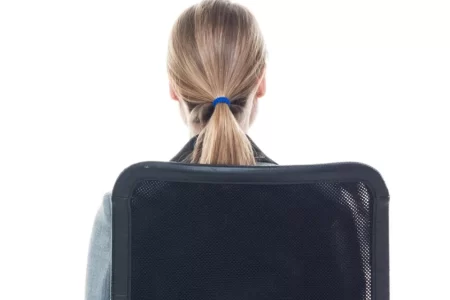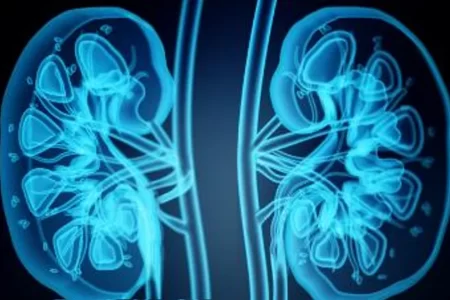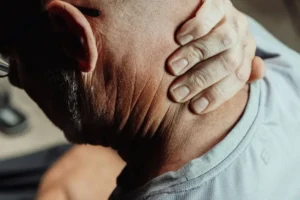Common Conditions That Can Mimic Kidney Stones Pain
- Updated on: Jan 24, 2024
- 5 min Read
- Published on Feb 21, 2023

Kidney stones are solid deposits that form in the kidneys when minerals and other substances in the urine crystallize. Kidney stone pain is a common symptom of this condition, characterized by severe pain in the back, side, or lower abdomen that can come and go in waves.
Accurate diagnosis of kidney stone pain is critical to ensure proper treatment and prevent complications. Misdiagnosis or delayed diagnosis can result in unnecessary procedures and prolonged pain and discomfort for patients. Additionally, some conditions can mimic kidney stone pain, making an accurate diagnosis even more challenging. Therefore, it is essential to seek medical attention if you experience any symptoms of kidney stone pain. Accurate diagnosis is typically achieved through a combination of medical history, physical examination, and imaging tests such as CT scans and ultrasounds.
Gastrointestinal conditions
Gastrointestinal conditions are a common cause of abdominal pain, and several of these conditions can mimic kidney stone pain. Some of the most common gastrointestinal conditions that can cause pain similar to kidney stones to include:
- Appendicitis: This is a condition in which the appendix, a small pouch attached to the large intestine, becomes inflamed and infected. Appendicitis can cause pain in the lower right side of the abdomen, which may be similar to the pain caused by kidney stones.
- Diverticulitis: Diverticulitis is a condition in which small pouches in the colon become inflamed or infected. This can cause abdominal pain, particularly on the left side of the abdomen, which may be similar to kidney stone pain.
- Inflammatory bowel disease (Crohn’s disease and ulcerative colitis): Inflammatory bowel disease is a chronic condition that causes inflammation in the digestive tract. This can cause abdominal pain, diarrhea, and other symptoms that may mimic kidney stone pain.
- Gastrointestinal obstruction: An obstruction in the digestive tract can cause severe abdominal pain, nausea, and vomiting, which may be similar to the symptoms of kidney stones.
- Irritable bowel syndrome: This is a chronic condition that can cause abdominal pain, diarrhea, and constipation. While the pain associated with irritable bowel syndrome is often less severe than that of kidney stones, it can still be difficult to distinguish between the two.
Urinary tract conditions
Several urinary tract conditions can mimic the symptoms of kidney stone pain. Here are some of the most common urinary tract conditions that can cause pain similar to kidney stones:
- Urinary tract infections: A urinary tract infection (UTI) is a common condition that can cause pain in the lower abdomen, back, or side. This pain can be similar to the pain caused by kidney stones.
- Ureteral obstruction: Ureteral obstruction is a blockage in the ureter, the tube that carries urine from the kidneys to the bladder. This can cause pain in the back or side that may be similar to kidney stone pain.
- Bladder infections: A bladder infection, also known as cystitis, can cause pain in the lower abdomen, frequent urination, and other symptoms that may be similar to the symptoms of kidney stones.
- Prostatitis: Prostatitis is a condition that causes inflammation in the prostate gland. This can cause pain in the lower abdomen, back, or groin, which may be similar to the pain caused by kidney stones.
Gynecological conditions
Gynecological conditions are another group of conditions that can mimic kidney stone pain. Some of the most common gynecological conditions that can cause pain similar to kidney stones include:
- Ovarian cysts: Ovarian cysts are fluid-filled sacs that develop in the ovaries. These cysts can cause pelvic pain, particularly if they rupture or become twisted. The pain associated with ovarian cysts can be similar to that of kidney stones.
- Ectopic pregnancy: An ectopic pregnancy occurs when a fertilized egg implants outside of the uterus, usually in the fallopian tube. This can cause severe abdominal pain, particularly on one side, which may be similar to the pain caused by kidney stones.
- Endometriosis: Endometriosis is a condition in which tissue similar to the lining of the uterus grows outside of the uterus, often on the ovaries, fallopian tubes, or other pelvic organs. This can cause severe pelvic pain, particularly during menstruation, which may be similar to kidney stone pain.
To accurately diagnose gynecological conditions that mimic kidney stone pain, doctors will typically perform a physical examination, take a medical history, and order diagnostic tests such as ultrasounds or CT scans. Treatment for these conditions will depend on the specific diagnosis but may include medication, hormonal therapy, or surgery.
Musculoskeletal conditions
Musculoskeletal conditions are another group of conditions that can mimic the pain of kidney stones. Some of the most common musculoskeletal conditions that can cause pain similar to kidney stones include:
- Muscle strain or spasm: A muscle strain or spasm can cause sudden, severe pain that may be mistaken for kidney stone pain. This type of pain can often be treated with rest, ice, and over-the-counter pain relievers.
- Herniated disc: A herniated disc is a condition in which the cushioning between the vertebrae of the spine ruptures, putting pressure on the nerves. This can cause back pain that radiates down the leg, which may be similar to the pain of kidney stones.
- Sciatica: Sciatica is a condition in which the sciatic nerve, which runs from the lower back down the legs, is compressed or irritated. This can cause shooting pain down the leg, which may be similar to the pain of kidney stones.
- Pelvic inflammatory disease: Pelvic inflammatory disease is an infection of the reproductive organs that can cause pelvic pain, which may be similar to the pain of kidney stones. This condition can be treated with antibiotics.
To accurately diagnose musculoskeletal conditions that mimic kidney stone pain, doctors will typically perform a physical examination, take a medical history, and order diagnostic tests such as X-rays, MRIs, or CT scans.
Other conditions
Several other conditions can mimic kidney stone pain. These conditions can be serious, and it is important to seek medical attention if you are experiencing symptoms. Some of the most common conditions that can cause pain similar to kidney stones include:
- Aortic aneurysm: An aortic aneurysm is a bulge in the wall of the aorta, the largest artery in the body. If an aortic aneurysm ruptures, it can cause severe abdominal pain, which may be similar to the pain caused by kidney stones.
- Pancreatitis: Pancreatitis is a condition in which the pancreas becomes inflamed. This can cause severe abdominal pain, which may be similar to the pain caused by kidney stones.
- Migraine: Migraines are a type of headache that can cause severe pain, often on one side of the head. Migraine pain can sometimes be mistaken for kidney stone pain.
To accurately diagnose these conditions, doctors will typically perform a physical examination, take a medical history, and order diagnostic tests such as CT scans, ultrasounds, or blood tests. Treatment for these conditions will depend on the specific diagnosis but may include medication, lifestyle changes, or surgery.
FAQs
What other health conditions can cause symptoms like kidney stones?
Conditions like urinary tract infections, appendicitis, and ovarian cysts can mimic kidney stone pain. Accurate diagnosis is crucial to determine the appropriate treatment.
Can muscle spasms be mistaken for kidney stone pain?
Yes, muscle spasms or strains in the back or abdomen can sometimes be misinterpreted as kidney stone pain. A thorough medical evaluation is essential for proper diagnosis.
Are there specific tests to differentiate between kidney stones and similar symptoms?
Diagnostic tests, such as imaging studies (CT scans or ultrasounds) and urine analysis, can help identify the underlying cause of symptoms and distinguish between conditions.
Do certain medications cause pain resembling kidney stones?
Some medications, especially those affecting the urinary system, may cause pain like kidney stones. Always inform your healthcare provider about your medications to aid accurate diagnosis.
Can stress contribute to symptoms that mimic kidney stone pain?
Stress-induced muscle tension and abdominal discomfort can sometimes resemble kidney stone pain. Addressing stress through relaxation techniques may help alleviate symptoms.












